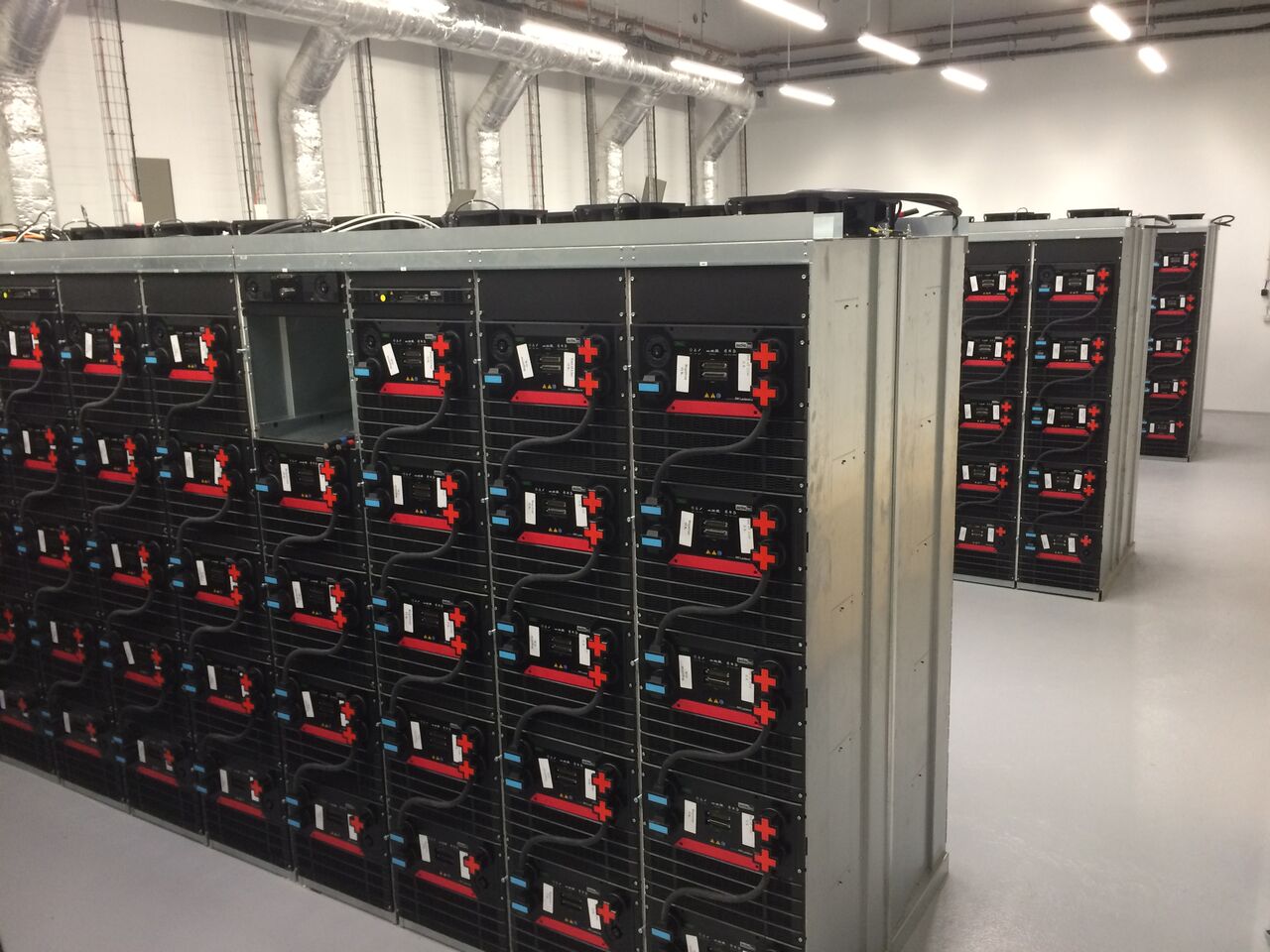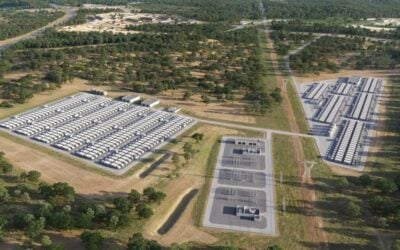
Leclanché is undergoing a “strategic reorganisation” of the company and said it has secured funding for its manufacturing and R&D activities while also announcing a pivot towards becoming a “green tech software and systems integration company”.
After first revealing that the reorganisation would be forthcoming in September of last year, the Switzerland-headquartered battery and battery storage systems manufacturer said in a letter to shareholders dated yesterday (1 June 2020) that “further restructuring steps are required to overcome the current balance sheet situation”. The company had announced fresh funding in February of this year that it said would enable it to treble its cell manufacturing capacity.
Enjoy 12 months of exclusive analysis
- Regular insight and analysis of the industry’s biggest developments
- In-depth interviews with the industry’s leading figures
- Annual digital subscription to the PV Tech Power journal
- Discounts on Solar Media’s portfolio of events, in-person and virtual
Nonetheless, company management said that “the Board is of the firm view” that Leclanché has “the potential to deliver profitable growth,” due to an order book for 2020-2021 in excess of CHF90 million (US$93.48 million), the fact that production of battery cells using high capacity cathode material NMC 622 began in 2019 and the company introduced a new line of G-NMC 60Ah cells which have a claimed high energy density and cycle lifetime, as well as forthcoming next-gen modules, which have lowered cost per kWh by more than 25% from 2018-2019 levels.
Leclanché’s Board also said that it has decided to create a build-own-operate project business line for “selected” stationary storage projects for which power purchase agreements (PPAs) and / or off-taker agreements can be brokered with local customers.
Manufacturing JV partner Eneris to provide working capital loans
The restructuring plan hinges on an investment from Eneris, a Poland and Luxembourg-headquartered clean energy and environmental solutions company which Leclanché said will invest more than CHF53 million in a capacity expansion programme as well as lending up to CHF42 million in the form of working capital loans.
Eneris is among the participants of the European Union’s €3.2 billion (US$3.58 billion) state aid programme announced in December 2019 to support battery manufacturing on the continent, with the Union’s European Commission more recently saying that its investments in supporting the sector in 2020 alone will exceed €1 billion.
Eneris and Leclanché will establish joint ventures (JVs) for the production of Leclanché’s technologies including products bearing the company’s branding. Leclanché CEO Anil Srivastava said the JVs will be majority-owned by Eneris, while Leclanche’s minority stake will include “key reserve matters” and the retention of approval rights. Eneris will also pay a CHF32 million royalty fee for non-exclusive licensing of Leclanché’s technology.
“The JVs with Eneris shall manufacture products based on Leclanché technologies with capacity reservation for Leclanché based on mutually agreed-upon business plans with Eneris,” Srivastava said, adding that the partnership agreement “will lift a tremendous capital burden off Leclanché’s shoulders while guaranteeing production capacity”.
The JVs will establish a cell manufacturing centre in Germany, and module assembly lines in Poland and Switzerland, with around 135 employees to be transferred in to join them. CEO Srivastava said that in all this would give Leclanché access to nearly 1GWh of production capacity by the first quarter of 2022 and up to 2.4GWh by the end of 2024.
The company supplies products to multiple industries, including the transport sector. In the renewable energy storage space, the execution of a flagship project to deliver a 35.6MW solar farm with 44.2MWh of battery storage on the Caribbean island of St Kitts has been delayed, firstly due to financing issues and then subsequently due to the company’s decision to move to a build-own-operate business model for projects, starting with the St Kitts project. Leclanché was also revealed by developer Hive Energy to be working to help progress plans for a 350MW / 700MWh solar-plus-storage project which has been proposed in England, although Hive said that while Leclanche is a “preferred partner” and has helped with community and stakeholder engagement matters including formulating fire safety protocols, it has not been selected as provider for the project which remains at its early stages of development.
Leclanché believes this move from a traditional turnkey EPC contract model to the new one will be a “highly profitable” pivot, the company’s letter to shareholders said. However, the initial establishment phase of this new model will require access to large infrastructure capital, especially in its first two years. The Swiss Stock Exchange-listed company is setting up a separate holding company called the BOO Holdco (Build-Own Operate Holding Company) in which it wants to retain a majority stake and run in partnership with “certain large infrastructure funds”.
A sub-heading in this article has been amended which erroneously stated Eneris would take a majority stake in the JV.






